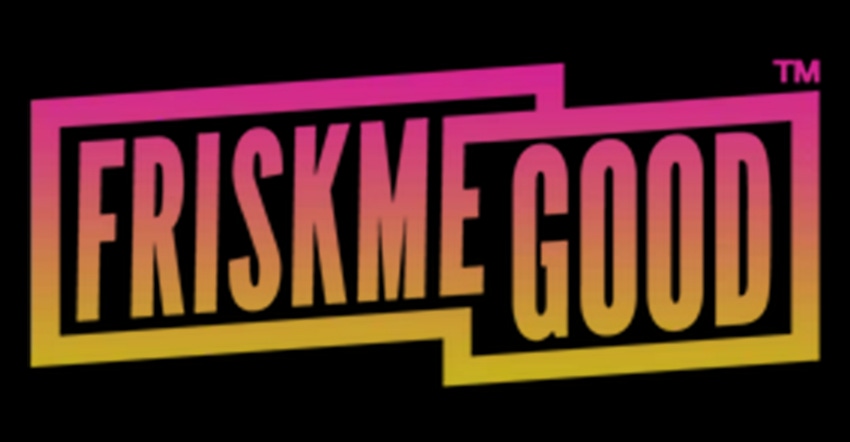Most people are aware of their carbon footprint in the modern age. With people looking to minimize their negative impact on the environment as much as they can, consumers are turning to sustainable companies, but many have noticed a hole in one industry; luxury fashion. A booming brand in the arena of high-end fashion, FRISKMEGOOD was built on sustainability.

In the 21st century, citizens of the world are being exposed to more information than ever on the ways our clothes impact our carbon footprints. With this shift of information, fashion labels are being challenged to transform themselves from the inside out to be more conscious of the impacts their products have on the environment.
Redesigning a fashion label into one that puts sustainability at the forefront of its considerations is not an easy task. It’s a good thing for luxury brand FRISKMEGOOD that sustainability is a principle on which it was founded.
FRISKMEGOOD is the fashion label established by Cierra Boyd exploding on the internet and revolutionizing the fashion game while it's at it.
Founding the company in the year 2017, Boyd has already been given the opportunity to work with musicians as grand as Ciara, Cardi B, and Saweetie, as well as reputable brands such as Nike and Puma – with Adidas joining that list earlier this month.
FRISKMEGOOD’s story begins with a slump after the entrepreneur graduated from college. Boyd, living at her parent's home in Cleveland, Ohio at the time, expresses that during this time of her life she felt like “a freshman in the real world.”
Worried about finding a job and everything the future held for her, the recent graduate grounded herself with one reminder: “My only dream is to be a fashion designer.”
It wasn’t long before the designer hit the drawing board. After a night of hunting for the perfect catchy name to compliment her personality, Boyd’s next step was to simply start creating, but there was one catch; new fabrics are expensive.
“After I graduated, I was broke. I couldn’t find a job. I had no money and I couldn’t afford to buy fabrics," she explains.
Boyd points to creative problem-solving as her motivator toward making sustainability the foundation of FRISKMEGOOD. Upcycling wasn’t just an option for her; it was her only option.
“I started by using what was available to me. My parent's attic was like a thrift store – I was reworking my mom's old dresses and making crop tops, stuff like that.”
It wasn’t long before the artist was challenged by a local fashion design challenge to create a piece from an unconventional material. Her material of choice was used shoes, and she created the first of FRISKMEGOOD’s staple product; the sneaker corset. This remains a distinct example of just how large of a role problem-solving played in the establishment of her brand.
“I was actually upcycling without knowing I was upcycling.”
With a successful run in the competition and an exciting new hand-crafted luxury fashion item, the designer was emboldened to tackle FRISKMEGOOD in full force.
Her new sneaker corset designs were posted to the e-commerce app Depop where they exploded. Boyd thanks Depop for allowing her brand the platform it needed to reach new spheres of people who appreciate fashion and ultimately propel FRISKMEGOOD to new heights.
After a number of successes, the designer was excited to begin buying and using new fabrics – seeing this as a testament to the brand’s luxury status – however, it wasn’t long before she realized this didn’t have to be the case.
“Later down the line, I was in a better place financially, and I was able to afford nice fabrics, but what I realized was that people responded in two very different ways to my upcycled designs vs. things I was making with traditional fabrics. After that realization, I vowed to myself that I would no longer be purchasing commercial fabrics and that’s when I fully decided that I would be a sustainable brand and make that my mission.”
FRISKMEGOOD has managed to continually grow by garnering support from individuals enthusiastic about the flourishing branch of fashion that meets at the intersection of sustainability and luxury brands.
With FRISKMEGOOD being a luxury brand taking a lead in the realm of environmentally conscious high fashion pieces, Boyd has no plans of letting it stop there. Noticing how important this movement is to the survival and revival of the fashion industry, Boyd is pushing the limits further than ever before.
Discussing her current efforts towards this movement, the designer says “yes I am still a sustainable brand, but I am now focusing more attention specifically on circularity.”
Boyd believes it is one thing to be environmentally conscious as a brand, but it is another to strive for circularity. “I really try to use all of my scraps. I’ve even done pieces with the soles of the used sneakers.”
In addition to her famous sneaker corsets, the designers updated goal of using every last bit of her material has led to original products such as a dress made completely from the soles of sneakers. This piece serves as another testament to the role her innovativeness plays in achieving a high standard of fashion while also being conscious of the products environmental impact.
Where Boyd has managed to tap into this important and growing sector of fashion, many major players in luxury fashion are doing their best to catch up, but to little avail.
FRISKMEGOOD’s success can be attributed to many things, but most of all is Boyd’s courage to take a risk and test the boundaries of fashion. This brand is proof there are sustainable solutions to luxury fashion, and consumers think so too.
As Boyd’s designs continue to be featured on celebrities social media posts, music videos, and even album covers, her takeover is in full effect. While other luxury brands take note and follow in her lead, the impact of FRISKMEGOOD on the future of the fashion industry in undeniable.
As for Boyd, she is not done yet. “I just really want to make a name for myself in the fashion industry, and I feel like it is going to happen. It is already happening.”
About the Author(s)
You May Also Like




